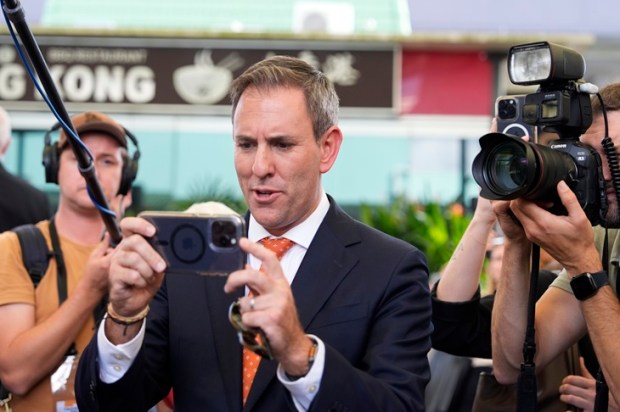‘An unexciting truth can easily be eclipsed by a thrilling falsehood.’ – Aldous Huxley
Some of the most troubling experiences in my decade-long career as a child protection worker were when I removed newborn babies from parents who used drugs. Many of these parents had their own histories of child abuse, trauma, and adversity. I knew my actions would devastate them and lead them to use even more drugs. I really felt for them, but I had to prioritise the safety of their babies – some of whom were placed in out-of-home care.
Prior to that chapter, I was a youth worker supporting young people involved with the youth justice system. Many of the young people I supported were dependent on drugs. Their health, education, and relationships were in ruins. Some of them died.
It breaks my heart that we might soon be opening our second supervised injecting room in Melbourne. Our state government and their so-called experts – under the banner of ‘compassion’ – claim these facilities save lives.
What they don’t tell us about is the dire shortage of drug residential rehabilitation centres in Victoria and right across the country.
There are only a handful of places where parents can receive treatment and bring their children with them. There is even less treatment available for drug users who have co-existing needs relating to homelessness, physical and mental health issues, histories of trauma, and much more.
Evidence tells us that these are the types of drug users who are most likely to use injecting rooms. Is it really so compassionate to give these drug users, who are some of the most vulnerable people in our society, no other option but to stay dependent on drugs?
What does the evidence tell us about the physical and mental health impacts of Cannabis – for users themselves, and for those around them?
For the person with an agenda, who is willing to cherry-pick a couple of individual out-of-date research studies, the evidence can be distorted to support whatever they want to say.
Lying by omission is one of their chosen paths, but truth can’t have an agenda – and the research community knows this. This is why systematic reviews are so important. Within academia, systematic reviews constitute the highest level of evidence in the evidence ‘hierarchy’, where the results of numerous individual studies are put together into just one summary.
In relation to Cannabis, the findings of every single systematic review I have read are unexciting and largely the same – that Cannabis is a dangerous substance and it causes children, young people, and adults, harm. Recent systematic reviews have found that:
- Cannabis increases the risk of cardiovascular conditions, gastrointestinal disorders, and lung and other cancers.
- There is a link between Cannabis use and a range of psychiatric disorders. This includes psychosis, even in healthy people.
- Frequent and dependent Cannabis use in youth is associated with IQ decline.
- Pregnant women using Cannabis are at increased risk of having babies with low birth weight and preterm birth.
- Cannabis use is a risk factor for suicidal behaviour, partner and child violence, and motor vehicle collision.
- The legalisation of Cannabis results in increased cannabis use in the general population, particularly amongst young people. (Although, the need for further research in this area is acknowledged.)
Frankly, it beggars belief that, despite this avalanche of evidence, there is a political party pushing to legalise Cannabis in Victoria, New South Wales, and Western Australia. Their website suggests that long-term Cannabis use may not impair cognitive functioning, cause mental health issues, or increase the risk of cancer!
Really? They say:
‘According to the most scientifically valid studies, long-term Cannabis smoking is not associated with elevated cancer risk, including lung, melanoma, prostate, breast or cervix.’
On their website they also say that legalising access to Cannabis ‘does not lead to increased use’. But again – they provide no evidence that can be easily checked.
When it comes to the use of of drugs across the Western world, it seems that some political movements do not care about evidence and they do not care about us.
I shudder to think what our world will be like if they get their way.
More people – particularly young people – will likely use and become dependent on Cannabis, and more lives will be ruined. We already have statistics telling us that in Australia, in 2021-22 the majority (61 per cent) of 10 – 19-year-old clients seeking drug and alcohol treatment sought treatment for guess what? Cannabis.
If governments legalise Cannabis it sends a dangerous message to young people that smoking Cannabis is healthy and safe. Parents and educators who are trying to guide young people away from Cannabis will face an uphill battle.
More Cannabis use will result in more newborns and older children being removed from their drug-dependent parents and being placed in out-of-home care. Research tells us that of the 45,400 children and young people who were in Australian out-of-home-care as of June 30, 2022, an estimated 60-70 per cent of them have a parent with a substance abuse disorder. This is a real tragedy – particularly as we know that for some children, removal from the parental home and placement in out-home-of-care puts them at greater risk of abuse than they were before entering care.
Legalising Cannabis will mean endorsing an industry that inflicts harm and devastation on children, young people, families, and communities.
If we are to flourish as a society our politicians must put aside their emotions, their agendas, and their need to support trendy causes which could be thrilling falsehoods. They must use their heads and be objective. They must develop laws and policies that are based on an unbiased and thorough review of the evidence – not based on one or two research studies that tell them what they want to hear.
Karen Broadley (PhD), Executive Member, Drug Advisory Council of Australia Ltd

























